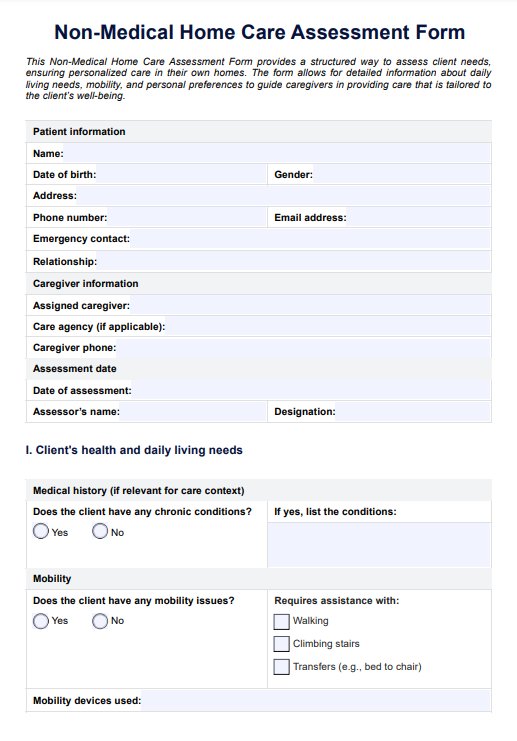Non-medical care refers to assistance with daily living tasks that do not involve medical treatment, such as help with personal hygiene, meal preparation, and household chores. It focuses on supporting individuals with everyday needs to enhance their comfort and independence.

Non-Medical Home Care Assessment Form PDF
Download a free Non-Medical Home Care Assessment Form PDF to efficiently evaluate the needs and preferences of individuals requiring non-medical care at home.
Non-Medical Home Care Assessment Form PDF Template
Commonly asked questions
Non-medical home care can be a better option for individuals needing help with daily tasks but not requiring medical attention. It allows people to remain home while receiving personalized, cost-effective care that meets their non-medical needs.
Medical care involves treatments and services provided by healthcare professionals to manage health conditions. In contrast, non-medical care focuses on assisting with daily activities like running errands and providing care in the home. Non-medical care does not involve clinical interventions or health monitoring.
EHR and practice management software
Get started for free
*No credit card required
Free
$0/usd
Unlimited clients
Telehealth
1GB of storage
Client portal text
Automated billing and online payments











